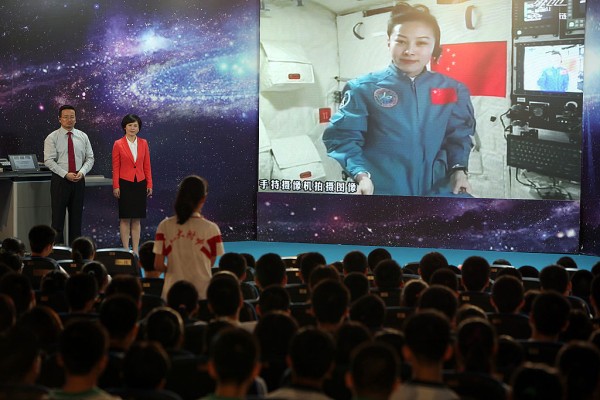Tiangong-1, China's first space lab is expected to fall back to Earth in the second half of 2017, after nearly six years of operation, Chinese officials said, according to an article published by space.com.
Wu Ping, deputy director of China's Manned Space Engineering office, said that the 9.4-ton spacecraft is currently in orbit at an altitude of 230 miles (370 kilometers) above the Earth, slightly lower than the International Space Station.
Wu assured that Tiangong-1's demise will not cause problems on the ground.
"Based on our calculation and analysis, most parts of the space lab will burn up during falling," Wu said during a news conference Wednesday, Sept. 14.
The official said that they are monitoring the spacecraft and appropriate warning will be issued if there is a risk of hitting a satellite. She added that a forecast of Tiangong-1 will be released if necessary.
According to the report, Wu's pronouncements have confirmed speculations that China is no longer in control of the 34-foot long spacecraft. Otherwise, operators could steer and guide its re-entry to the ocean at a specified time, the report added.
Tiangong-1 was launched by China in September 2011 to try out their docking technologies and other skills that will be helpful for the planned building of a space station in the early 2020s.
When Tiangong-1 was in operation, three spacecraft docked with it: Shenzhou-8 in Nov. 2011, Shenzhou-9 in June 2012 and Shenzhou-10 in June 2013. The latter two missions carried three Chinese "taikonauts" to the space lab.
In March 2016, Tiangong-1's mission officially ended when it stopped sending data.
Last week, on Sept. 15, China launched its successor, Tiangong-2 from the Jiuquan Satellite Launch Center in northwestern China.
In mid-October, two taikonauts are scheduled to arrive at Tiangong-2 for a 30-day stay in the spacecraft, according to Chinese officials.
China is not part of the International Space Station being operated by a multinational consortium, led by the United States and Russia.
By 2020, China will have its own space station in orbit, the report said.


